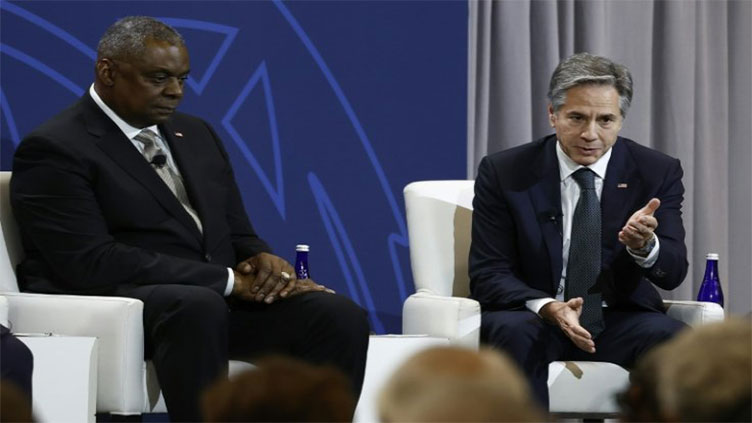US, Japan talk on updating alliance as China worries grow

World
The United States on Wednesday holds talks on ways to "modernize" its alliance with Japan.
WASHINGTON (AFP) – The United States on Wednesday holds talks on ways to "modernize" its alliance with Japan, which plans to ramp up its defenses in the face of a rising China and tensions over Taiwan and North Korea.
The Japanese foreign and defense ministers were in Washington for talks with their counterparts two days before a visit by Prime Minister Fumio Kishida, who is touring Group of Seven nations to kick off Japan s leadership this year of the elite club of industrial democracies.
The ministers "are going to lay out a vision of how a modernized alliance between the United States and Japan is positioned to prevail in this new era of strategic competition," a senior US official said, in an allusion to the rise of China.
The talks are expected to finalize a plan by the United States to send a so-called Marine Littoral Regiment, a more agile unit that can boost defenses both by sea and air, to Okinawa, the southern Japanese island strategically close to Taiwan.
Okinawa, under US control until 1972, is home to more than half of the 50,000 US troops in Japan, whose leaders for decades have spoken of easing the burden on a local population often resentful of the bases.
But Japan s calculus has shifted with the growing assertiveness of China under President Xi Jinping. Secretary of State Antony Blinken, who will take part in Wednesday s talks, has previously warned that China has moved up its timeline for considering seizing Taiwan by force.
Last month Japan revamped its defense policy as it warned that China, with which it has a fraught history, posed the "greatest security challenge ever" to its security.
Kishida s government said Japan would increase defense spending by 2027 to two percent of GDP, in line with a separate goal by NATO nations, whose security concerns have also spiked due to the Russian invasion of Ukraine.
The moves, which polling shows are largely backed by the public, mark the latest shift by Japan which has been officially pacifist since its defeat in World War II, when US occupiers constitutionally stripped the country of the right to wage war.
US ASSISTING COUNTERSTRIKE ABILITY
Japan will also seek to build a "counterstrike capacity" -- being able to hit launch-sites that threaten the country.
Tokyo over the past year has been alarmed by North Korea which has tested a slew of ballistic missiles, including some that have flown over Japan.
North Korea s missiles and the "growing bellicose behavior" of China show "you have to have a way of deterring a potential adversary," the US official said on condition of anonymity.
"The Japanese do not want to go down the nuclear weapons lane and I think that s something that we would not support as well, but having an ability to strike back, that is deterrence (which is) giving people pause," he said.
The Center for Strategic and International Studies recently released findings from wargames to chart out a Chinese invasion of Taiwan and found that Beijing would strike Japanese bases, inflicting heavy losses, although China would ultimately fail to take Taiwan.
China claims Taiwan, a self-governing democracy, as part of its territory and last year carried out exercises seen as a test-run for an invasion after a defiant visit to Taipei by Nancy Pelosi, then speaker of the US House of Representatives.
Kishida was signing another significant agreement on Wednesday in London that will allow British troops to deploy in Japan for training and other operations.

